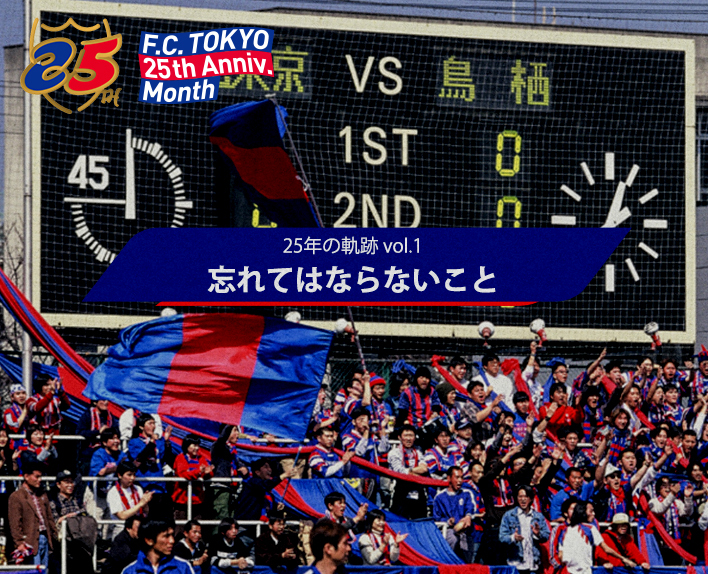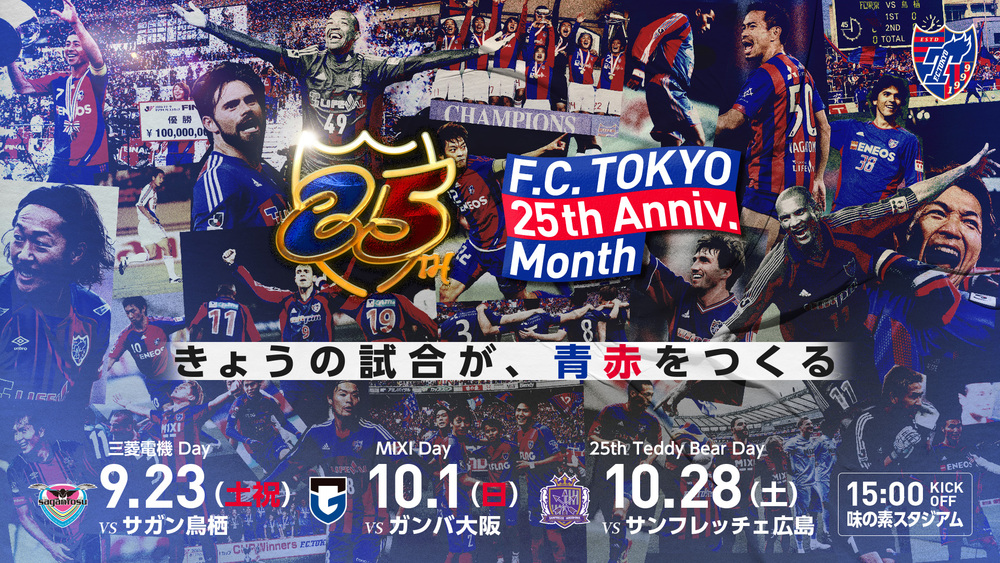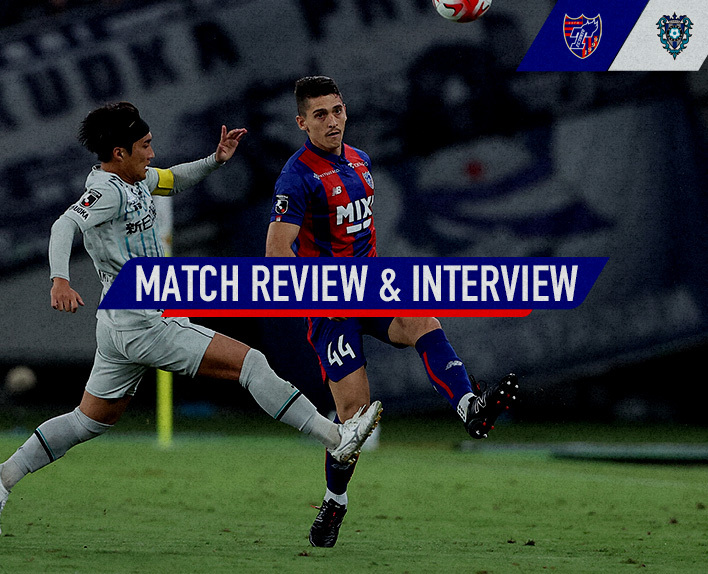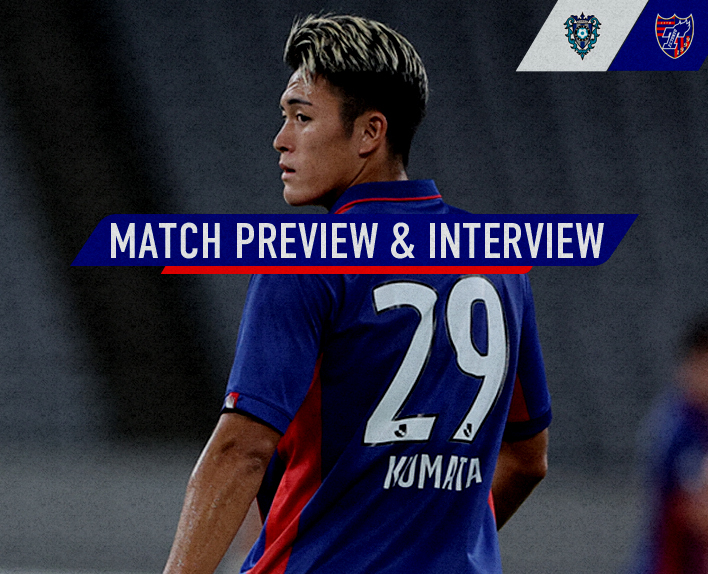Founded on October 1, 1998, Tokyo became the first professional club to call Tokyo its home town.
Since the early days of the J-League, when it started with great fanfare, there has been a movement for the predecessor Tokyo Gas Soccer Club to turn professional. The team, which was strengthening itself, invited Amaral from Brazil in the 1992 season. Ryuji Fujiyama, who joined as an "employee player" in the same season, signed a professional contract in the 1994 season.
However, the situation forced us to give up on professionalization. Nevertheless, the team continued to move forward and strive for steady growth.
In the 1994 season, Nagoya Grampus made it to the quarter-finals in their first appearance in the Emperor's Cup. They consistently ranked high in the Japan Football League (JFL). Encouraged by their good results, they announced their return to the J-League in the 1997 season and continued to actively work towards becoming a professional team. In the same season, they also made it to the semi-finals in the Emperor's Cup, defeating Nagoya Grampus Eight, Yokohama Marinos, and Shonan Bellmare.
"A team loved by many" is the slogan, and in the 1998 JFL season, they surpassed Kawasaki Frontale by 1 point in the final match and won the championship in a "lucky" manner.
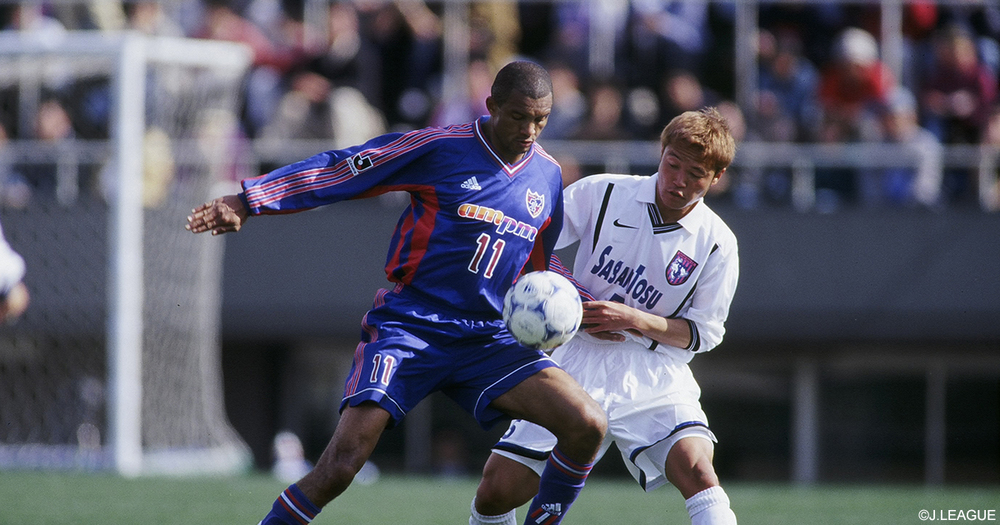
At that time, coach Kiyoshi OKUMA thoroughly emphasized the principles and principles of soccer, as well as a common understanding of how to win. In order to make use of Amaral's scoring ability, he stuck to a solid defense and quick counterattacks. Even if it was a rough and tough game, Sandro and Takayuki KOMINE put their bodies on the line in the final line. In the midfield, balance was considered important. Despite acquiring numerous big names as defensive midfielders, it was also impressive how Satoru ASARI was able to secure his position for a long time.
Even after moving to the J-League, we aimed to continue our style by keeping many of our employees as players. While respecting Verdy and Júbilo Iwata, we also took advantage of being a latecomer to the J-League and sometimes used more experienced teams as a learning opportunity.
"Once on the pitch, there is no difference between professionals and amateurs" - The 1999 J2 League season where they, who were nothing as professional players, struggled to grasp something.
The opening match against Sagan Tosu was attended by 3,685 spectators at the National Nishigaoka Soccer Field. It may be hard to believe now, but there was a sense of joy in having "3,000 people!" and an intense battle filled with excitement unfolded.
In the 4th minute, Kensuke KAGAMI's through pass led to Hayato OKAMOTO breaking through the defense and scoring with a quick decision shot. This goal not only marked the first goal of the J2 League, but also remains in the memories of people as the opening moment of Tokyo. Ace player Amaral also scored, leading to a 2-0 victory and a successful start in the J2 League with accumulating points.
In their first participation in the Nabisco Cup, they showed a remarkable performance and advanced to the semifinal round. They pushed Kashima Antlers to the brink and Yukihiko SATO was also awarded the New Hero Award.
The spirit of giving our all in the current match has manifested itself, but it can be said that we still lack the team strength and flexibility to balance both cup and league matches.
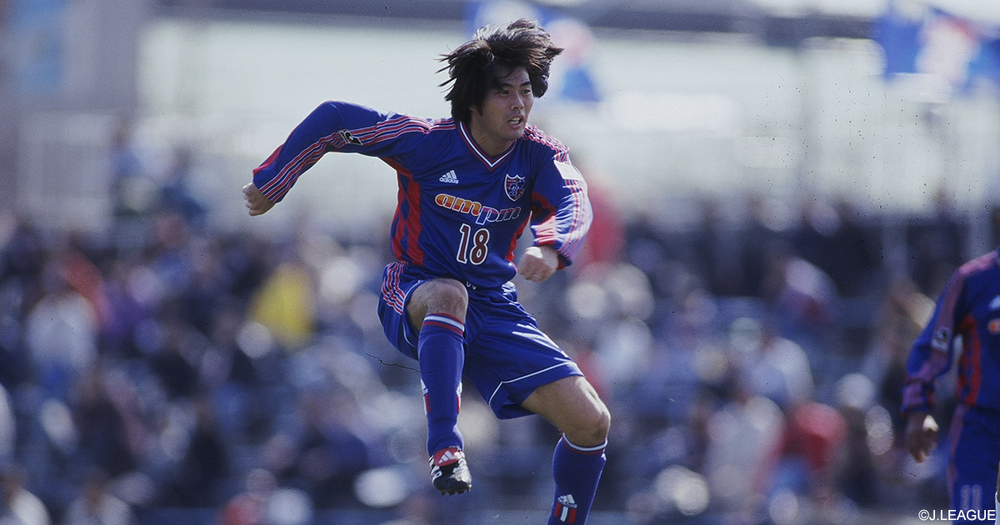
After the Nabisco Cup, the J2 League resumed and we suffered a defeat to Tosu, starting a losing streak. We were only able to earn 3 points in 5 games. Before the final match, we were defeated by Vegalta Sendai and the players were in tears as we fell to 3rd place.
Still, everyone gathered without anyone saying so, and switched their mindset to "we have no choice but to do what we can and what we must do". The sense of unity and the passion to fight through it all led to a dramatic promotion.
November 24th, Sec. 36, Albirex Niigata away game. Kensuke KAGAMI scored a long-awaited goal and won 1-0. On the other hand, Oita Trinita, who were in 2nd place at the time, were tied 1-1 in the 89th minute by Montedio Yamagata's Tatsuma YOSHIDA's free kick, leading to extra time. If it ends in a draw, they will only earn 1 point, allowing Tokyo to move up to 2nd place.
It was a time when there was no instant news on the internet, but Masamitsu KOBAYASHI kept calling his friend in Oita to keep up with the situation. As soon as the match between Oita and Yamagata ended in a draw, Takashi OKUHARA ran towards the stands from the bench. The supporters jumped down from the stands and a circle of joy was formed. It was a generous time when such actions were allowed and seen with a smile, embodying the idea that "something will happen if you don't give up".
The team that has caused many "dramatic developments" and giant killings has also captivated football fans, including (to put it a bit rudely) the maniacal ones.
Always keeping the initial passion in our hearts to be "strongly loved", each of us continues to pour our unending passion into soccer. There is no doubt that this has laid the foundation for a club worthy of the J1 League.
Time goes around and around. The scale of the club, the maturity of the team, and the environment surrounding football in Japan and the world have changed significantly since then. We are now required to "Think global" and simply "Act local" may not be enough to survive in this era.
But there is something that must not be forgotten. Give your all in the upcoming match, never give up until the end - the fighting spirit and passion have lit a flame in people's hearts and given them courage.
Text by Yū Fujiwara (Freelance Writer)
※The team name at the time of the article is written.
【25-year history】Special column is here
Journey of 25 years vol.2: The Road to the First Title
Journey of 25 years vol.3: Blue Tokyo
